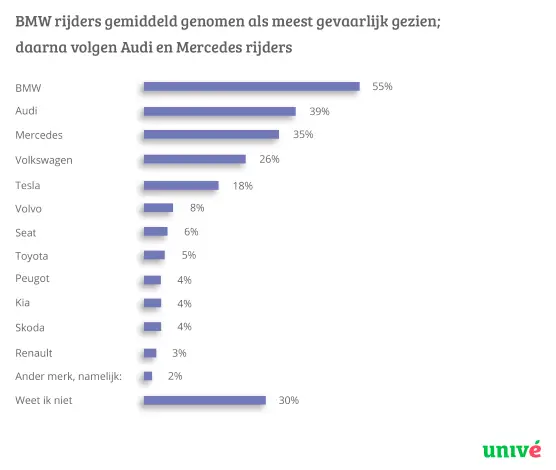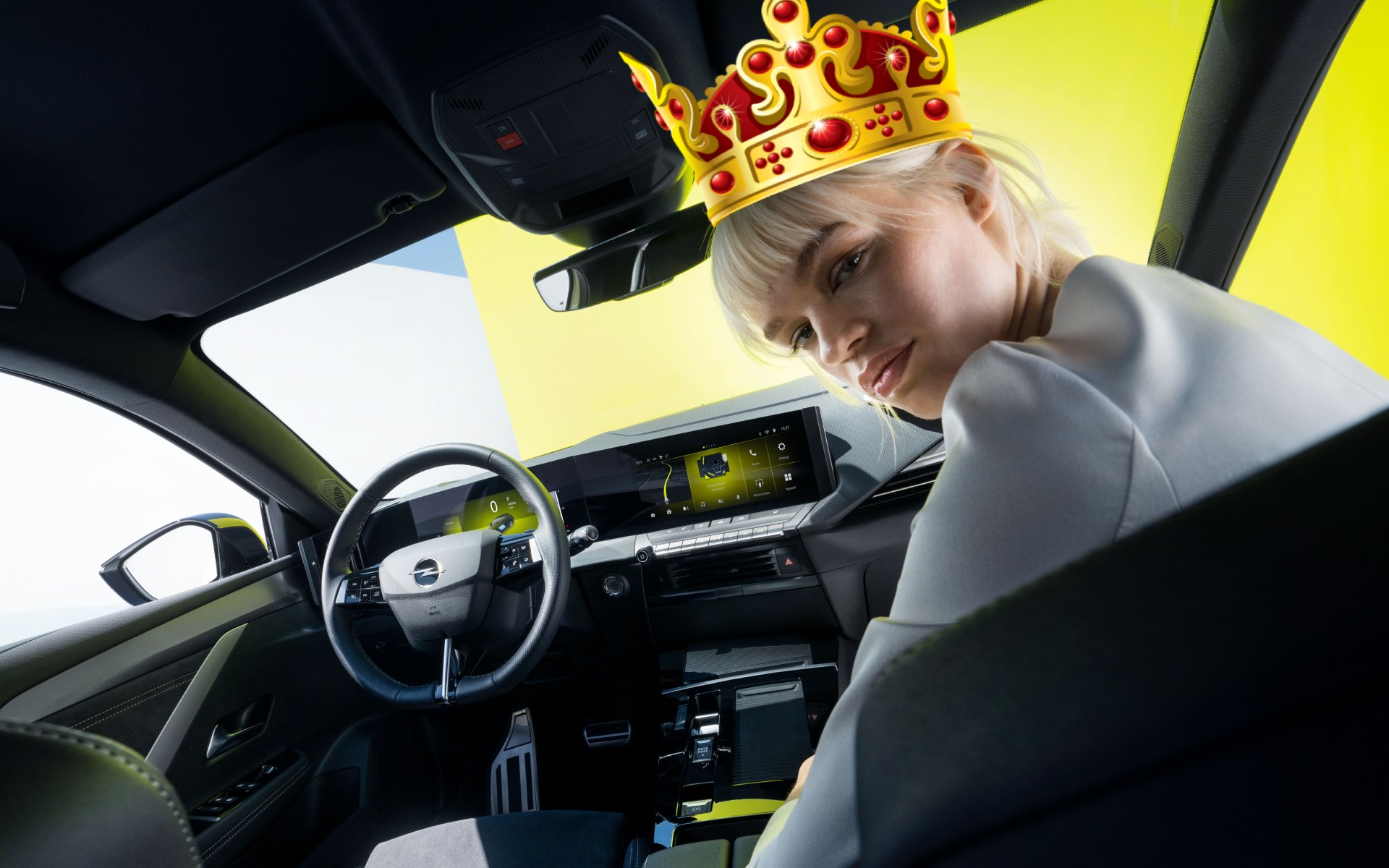Driving behavior survey: Dutch drive like the best, they think themselves
Average scores
A striking survey by MarketResponse – conducted on behalf of Univé – shows that the Dutch are very good drivers when they have to judge their own driving style. Dutch people give their own driving an average of 7.6. Over 60% of the 1,007 respondents gave themselves an 8 or higher. With averages of 7.6 and 7.2, their partners and parents can also count on nice ratings.
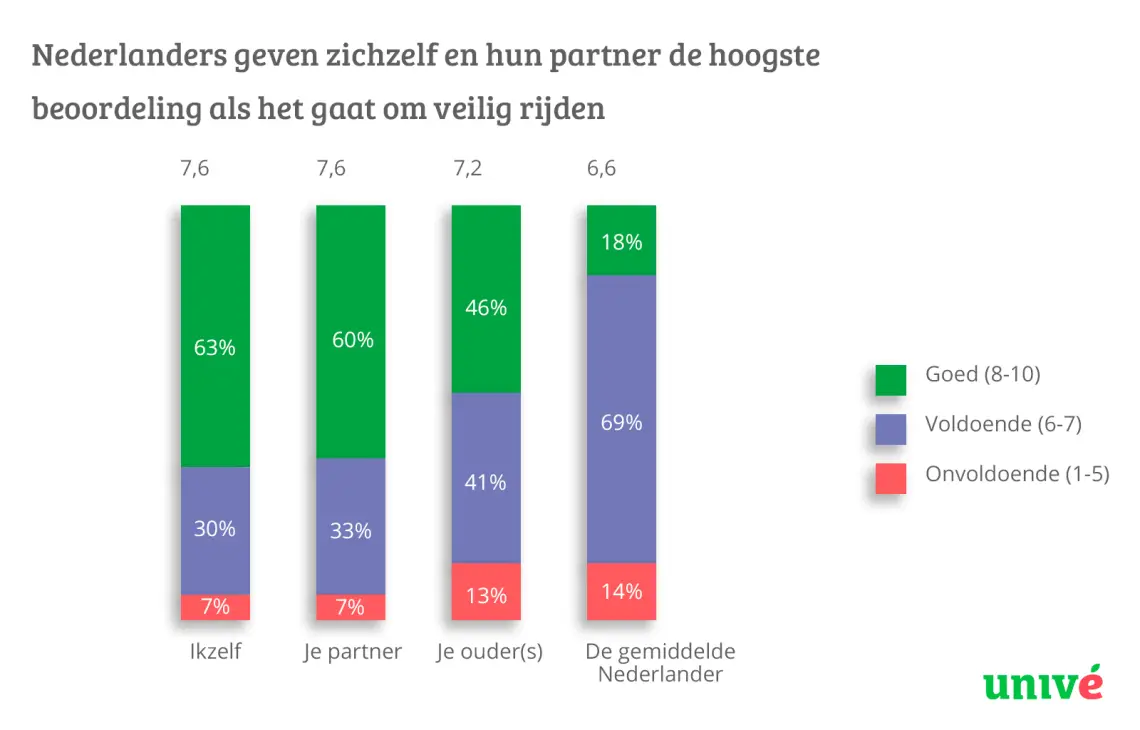
‘That one can’t drive!’
On the driving behavior of other road users, we are a lot more critical. Rob Stomphorst of Veilig Verkeer Nederland (VVN) is hardly surprised that Dutch people consider the driving behavior of themselves, their partners and their parents safer than that of (other) fellow road users.
Critical view
“A matter of perception. We are familiar with our own qualities and those of those around us and judge ourselves as the perfect driver. Even in traffic, our confidence in this is often so rock-solid that it feels uncomfortable or does not even occur to us to question this. Our critical eyesight becomes blurred, and even when we realize that we ourselves are causing dangerous situations or almost an accident, we often forget about it,” says Stomphorst. “Unknown, on the other hand, makes unloved. On anonymous road users who may well endanger us with high-speed maneuvers or who actually get in our way with their slower speeds, we are a lot more critical.”
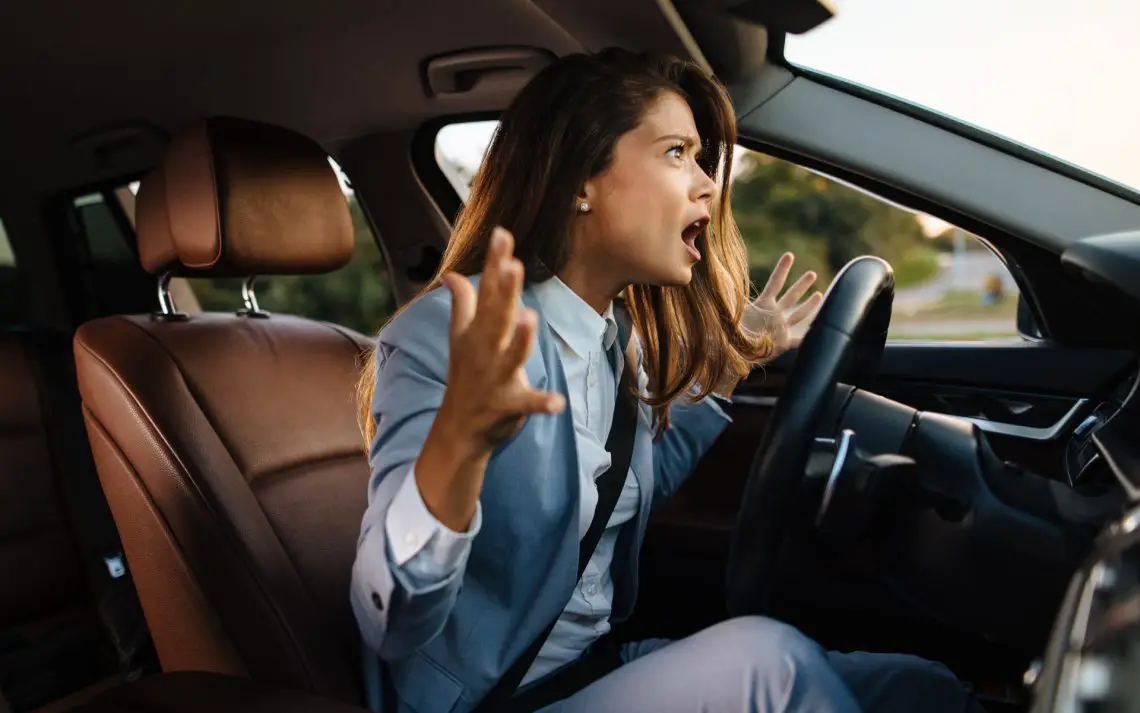
Over-65s give themselves a 9
A few more notable things from the survey. In particular, older drivers and men are above average in their satisfaction with their own traffic participation when it comes to safety. Over a quarter of over-65s consider their own driving style worth at least a 9, a rating that 1 in 5 male drivers also give themselves. Women, with an average rating of 7.7, appear to be slightly more positive about their partner’s driving than their own (7.5). Overall, 19% even give their counterpart at least a 9 when it comes to safe traffic participation.
The perfect motorist?
As many as 92% of motorists say they invariably indicate direction when changing lanes. The number of respondents who dosedly reduce speed instead of braking hard is also significant at 84%. By their own assessment, 77% also choose control rather than speed when cornering, 78% shift gears on time rather than late, and likewise 78% keep neatly to the speed limit. In particular, older people see themselves as safe drivers, while younger people see areas for improvement in their own driving.
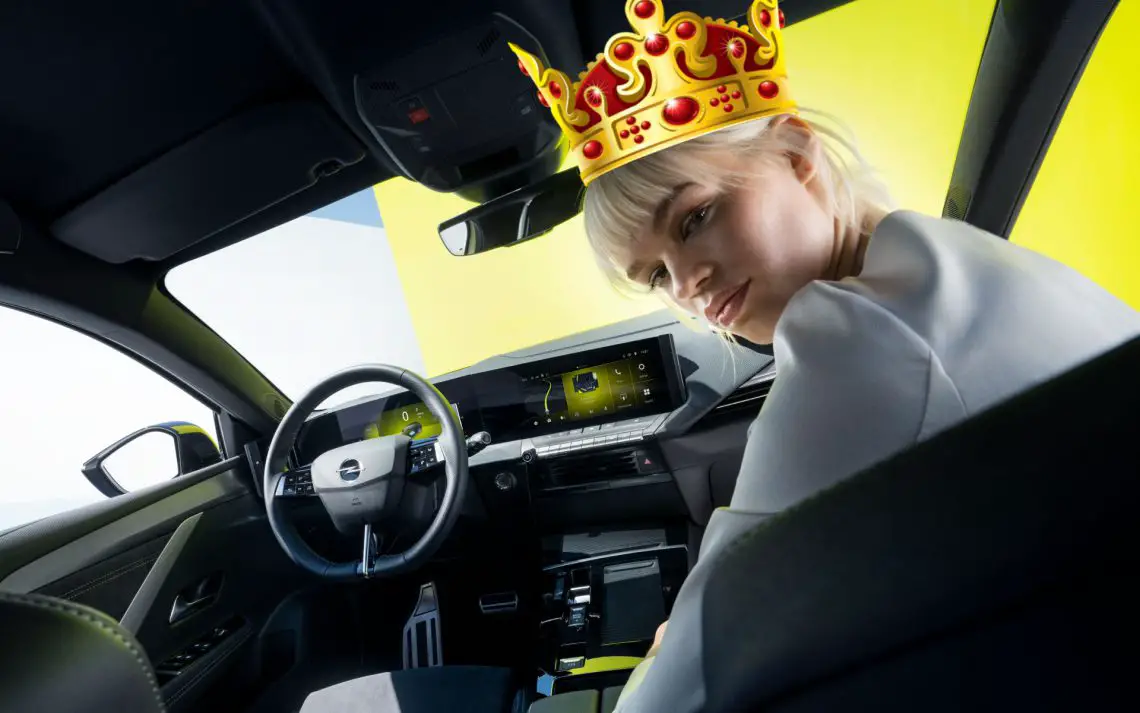
Score of ‘the average Dutchman’
The driving behavior of “the average Dutchman” can count on considerably less appreciation, with an average rating of 6.6. According to two thirds, for them there is at best a 6 or a 7 in it, while 13% of the Dutch disapprove of their driving with an insufficient. Most respondents believe that (other) men in particular cause more danger on the road. Little surprise, they additionally find that a young age and lack of driving experience increase the likelihood of unsafe traffic situations.
Sharing your data for discounts, would you?
Through Safe on the Road – a tool that gives car insurance policyholders insight into their actual driving habits through their user app – it is possible to get a discount on your premium, but you must first share your data. Johan van den Neste, director of Univé Schade, says, “Through Safe on the Road, we want to help promote safe driving behavior and thus overall road safety.”
He continues: “The tool monitors the extent to which users accelerate and decelerate, stick to speed and use their phones while driving. We reward policyholders who participate measurably safely in traffic each month with a premium discount, which can be as high as 10 percent.”
BMW most dangerous brand considered
When it comes to car brands, BMW tops the list as the most dangerous brand (55%). The top five is completed by Audi (39%), Mercedes-Benz (35%), Volkswagen (26%) and Tesla (18%). After that, a sizable gap falls to Volvo (8%) and the other brands. 30% of those surveyed said they did not know which make of car they considered the most dangerous on the road.
